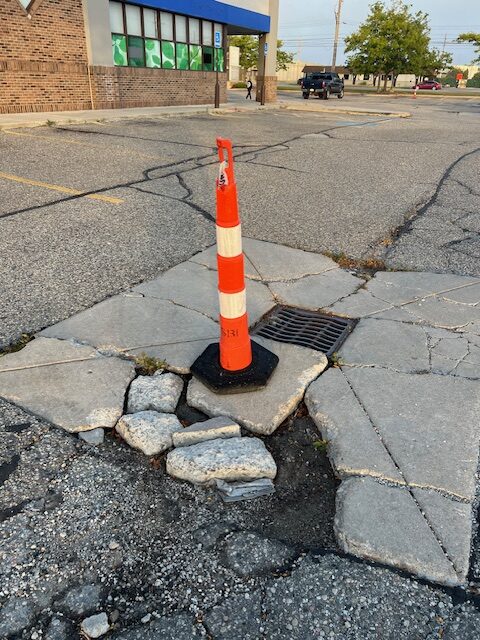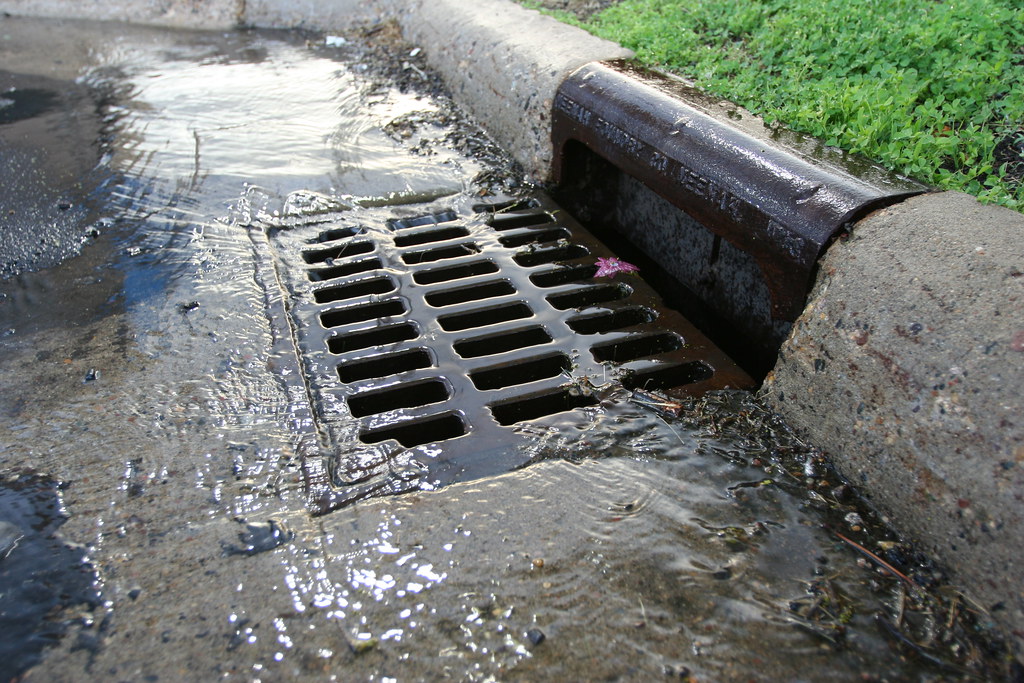Storm Drain Servicesin Center Line MI
Storm Drain Solutions for Effective Water Management
We Are Locally Owned & Operated For Over 37 Years
Contact Us Today!
We Serve Businesses In And Around The Following Cities:
About Storm Drain Services
Essential Guide to Storm Drain Management in Commercial Properties
The city of Center Line symbolizes progressive urban development, envisioning a resilient, sustainable future. In this context, a significant, yet often overlooked, aspect of urban infrastructure is the storm drain system. Understanding storm drain management crucial, especially for commercial properties. This comprehensive guide will provide insights into the storm drainage system process, its commendable benefits, and real-world applications, with a special focus on commercial entities across the thriving cityscape of Center Line.
The Importance of Storm Drain Systems in Center Line’s Commercial Sector
Commercial properties in any bustling city like Center Line must deal with significant volumes of stormwater. Storm drain basins are an essential fixture on these properties, designed primarily to collect and channel rainwater and runoff. They play a crucial role in preventing potential flooding and maintaining the integrity of the property by managing the excess stormwater efficiently.
Every storm drain basin comprises several integrated components, including a storm drain pipe, storm sewer catch basin, catch grates, and a cleanout access point. Aptly servicing all commercial properties regardless of size, these robust stormwater drainage systems ensure optimal water evacuation while seamlessly blending with the architectural aesthetics. Importantly, integrating an efficient storm drain cleanout ensures easy inspection and maintenance, vital in addressing clogging issues and maintaining continuous system operation.
Understanding the Storm Drainage System Configuration
The choice of storm drain design largely depends on the property’s size, layout, and rainfall intensity in the area. Concrete storm drains, precast storm drains, and storm sewer lines have each gained significant popularity owing to their strength and durability. Typical configurations involve storm drain pipes leading to catch basins or storm sewers, functioning to trap sediments and debris to prevent downstream blockage.
These drainage systems extend below street level, often connecting to the city storm drain network or diverting flow to designated stormwater channels. In customized settings like parking lots, parking lot storm drain grates cover the catch basins, allowing water ingress while preventing trash and debris from entering.
The storm drainage setup also encompasses notable elements like the storm drain manhole and the storm water manhole, offering access points for inspection, cleaning, and maintenance tasks. As part of ensuring smooth operational flow, adopting efficient methods like hydro jet storm drain cleaning can render clogging issues and blockages to be a thing of the past.
Real-World Application and Benefits of a Well-Managed Storm Drain System
In Center Line, businesses and commercial establishments are increasingly leveraging an expert storm drain contractors’ service for installing a storm drain system or periodic maintenance. D&J Contracting is known for championing such intricate tasks with remarkable efficiency, bringing ingenuity and local expertise to the table.
An efficient storm drain system offers commercial properties an array of benefits. Preventing flooding during heavy rainfall, a well-installed storm drain boosts property resale value and assures tenants about their business continuity during weather adversities. Moreover, it fosters local ecosystem health by reducing soil erosion and redistributing rainwater to vegetation and aquifers naturally.
Commercial properties, such as shopping complexes and large office buildings in Center Line, have significantly benefited from D&J Contracting’s storm drain services. From installing entire storm sewer systems to conducting storm drain pipe cleaning or storm sewer cleanout jobs, they have effectively tackled the most challenging scenarios paving the way for a worry-free monsoon season for countless businesses.
Maintaining a Storm Drain System: A Proactive Stance
With commercial properties playing a massive role in the cityscape of Center Line, maintaining storm drain systems is crucial. Accumulated debris, soil, or excess vegetation can result in a clogged storm drain, disrupting the normal flow and function of the stormwater drainage system.
A regular inspection schedule, coupled with professional storm drain cleaning services, can circumvent such unwelcome circumstances. D&J Contracting, yet again, stands as a testament to such dedication, offering timely storm drain repair near you, alongside personalized assistance for any unforeseen pipe or storm sewer repair near your commercial facility.
In conclusion, storm drain systems, vital to real estate infrastructure in Center Line’s commercial sector, need detailed consideration. Procuring expert storm drain installation and maintenance services from trusted contractors like D&J Contracting, guarantees seamless drainage operations and subsequent protection from environmental adversities. Hence, businesses must vigilantly incorporate and maintain these systems in their everyday operation – a prudent step towards a sustainable future.
Storm Drain Services Gallery


Call Us Today to receive your Free Quote for
Storm Drain in Center Line
Serving: Center Line, Michigan

About Center Line, Michigan
Historically, the land that Center Line came to occupy was swamp and wilderness until the early nineteenth century. As land became scarce, French, German, Belgian, and Irish immigrants began clearing the forests and draining the swamps. Center Line was known as “Kunrod’s Corner” during the mid-nineteenth century. The theory is that the French named it “Center Line” because it was the middle of three Potawatomi trails from Fort Detroit to northern trading posts. The “center line” was the trail used from Detroit to Utica. The community received its initial start when Catholics decided to build a church so that they would not have to walk to St. Mary’s in Detroit for Sunday Mass. This church (St. Clement’s) was established in 1854 and attracted more Catholic settlers into the area. In 1863, the first general store was constructed by Joeseph Buechel. On July 19, 1878, Hieronymous Engelmann was the first postmaster, and he was succeeded in 1885 by Sophia Buechel. The “Centre Line” post office closed on July 31, 1906, and the name was restored to Center Line thereafter. In this era, street car tracks connected Detroit to Center Line along Van Dyke Road, and Ten Mile Road was the final stop of the street car. The village was incorporated in 1925 in the center of Warren Township, which is now the city of Warren, and was incorporated as a city in 1936.
Center Line is in southwestern Macomb County and is surrounded entirely by the city of Warren. It is 11 miles (18 km) north of downtown Detroit, 7 miles (11 km) west of St. Clair Shores, 6 miles (10 km) east of Royal Oak, and 11 miles (18 km) south of Utica. Interstate 696 runs along the northern edge of Center Line, with access from Exits 22 through 24. Highway M-53 (Van Dyke Avenue) runs north-south through the center of town, connecting Detroit and Utica.
According to the U.S. Census Bureau, the city of Center Line has a total area of 1.75 square miles (4.53 km), all land.
| Census | Pop. | Note | %± |
|---|---|---|---|
| 1930 | 2,604 | — | |
| 1940 | 3,198 | 22.8% | |
| 1950 | 7,659 | 139.5% | |
| 1960 | 10,164 | 32.7% | |
| 1970 | 10,379 | 2.1% | |
| 1980 | 9,293 | −10.5% | |
| 1990 | 9,026 | −2.9% | |
| 2000 | 8,531 | −5.5% | |
| 2010 | 8,257 | −3.2% | |
| 2020 | 8,552 | 3.6% | |
| U.S. Decennial Census | |||
As of the census of 2010, there were 8,257 people, 3,632 households, and 1,988 families residing in the city. The population density was 4,745.4 inhabitants per square mile (1,832.2/km). There were 3,920 housing units at an average density of 2,252.9 per square mile (869.8/km). The racial makeup of the city was 82.5% White, 12.0% African American, 0.4% Native American, 2.5% Asian, 0.1% from other races, and 2.5% from two or more races. Hispanic or Latino of any race were 1.7% of the population.
There were 3,632 households, of which 27.7% had children under the age of 18 living with them, 32.0% were married couples living together, 17.5% had a female householder with no husband present, 5.2% had a male householder with no wife present, and 45.3% were non-families. 40.2% of all households were made up of individuals, and 18.1% had someone living alone who was 65 years of age or older. The average household size was 2.22 and the average family size was 3.01.
The median age in the city was 41.2 years. 21.4% of residents were under the age of 18; 8.2% were between the ages of 18 and 24; 25.1% were from 25 to 44; 27.5% were from 45 to 64; and 17.7% were 65 years of age or older. The gender makeup of the city was 46.1% male and 53.9% female.
85.9% of residents 25 or older hold a high school degree. 10.8% of residents 25 or older hold a bachelor’s degree or higher. Median household income was $30,752. 21.3% of the population lives below the federal poverty line.
As of the census of 2000, there were 8,531 people, 3,821 households, and 2,074 families residing in the city. The population density was 4,912.6 inhabitants per square mile (1,896.8/km). There were 3,916 housing units at an average density of 2,255.0 per square mile (870.7/km). The racial makeup of the city was 93.82% White, 3.09% African American, 0.25% Native American, 1.01% Asian, 0.26% from other races, and 1.57% from two or more races. Hispanic or Latino of any race were 1.51% of the population.
There were 3,821 households, out of which 24.2% had children under the age of 18 living with them, 36.8% were married couples living together, 13.7% had a female householder with no husband present, and 45.7% were non-families. 40.9% of all households were made up of individuals, and 22.5% had someone living alone who was 65 years of age or older. The average household size was 2.18 and the average family size was 2.99.
In the city, the population was spread out, with 21.8% under the age of 18, 6.9% from 18 to 24, 28.5% from 25 to 44, 20.5% from 45 to 64, and 22.4% who were 65 years of age or older. The median age was 40 years. For every 100 females, there were 81.5 males. For every 100 females age 18 and over, there were 75.5 males.
The median income for a household in the city was $31,677, and the median income for a family was $47,241. Males had a median income of $39,947 versus $26,487 for females. The per capita income for the city was $19,066. About 10.6% of families and 13.3% of the population were below the poverty line, including 17.9% of those under age 18 and 14.4% of those age 65 or over.
Most Center Line residents are zoned to schools in Center Line Public Schools, including Center Line High School. A small portion of the city is in Van Dyke Public Schools, served by Lincoln High School.<
St. Clement Catholic School, of the Roman Catholic Archdiocese of Detroit, was in Center Line. It was established in 1857. It had 110 students in the 2009-2010 year, and then 12 teachers and 89 students in its final year, 2010-2011. The parish decided to close the school as a parish takes a greater share of the costs if the number of students is under 100.
The archdiocese operated St. Clement High School in Center Line. It closed in 2005. Macomb Christian Schools (MCS) occupied the old St. Clement High School building from 2017 until 2019, when MCS shutdown.
Call Us Today to receive your Free Quote for
Storm Drain in Center Line
Related Services in Center Line, Michigan
We Serve Businesses In The Following Zip Codes:
48007, 48015, 48021, 48026, 48035, 48036, 48038, 48042, 48043, 48044, 48045, 48046, 48047, 48048, 48050, 48051, 48066, 48071, 48080, 48081, 48082, 48083, 48084, 48085, 48088, 48089, 48090, 48091, 48092, 48093, 48098, 48099, 48225, 48230, 48236, 48310, 48311, 48312, 48313, 48314, 48315, 48316, 48317, 48318, 48397